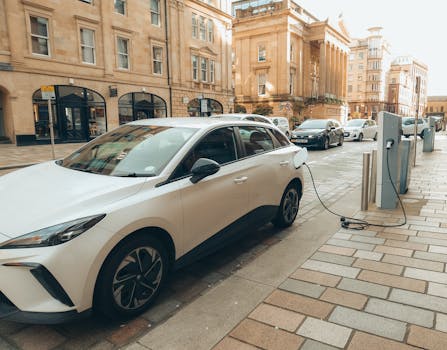
Smart Cities: Urban Trends for 2025
Smart Cities are revolutionizing the way we live, work, and interact with our surroundings. As we look ahead to 2025, it’s clear that urban trends will play a significant role in shaping the future of cities. Smart Cities are at the forefront of this revolution, leveraging technology and innovation to create sustainable, efficient, and livable communities.
Section 1: Introduction to Smart Cities

So, what exactly are Smart Cities? A Smart City is an urban area that uses information and communication technologies (ICT) to enhance the quality of life for its citizens. This can include everything from smart traffic management to intelligent energy grids, and from smart buildings to innovative public services.
The concept of Smart Cities is not new, but it has gained significant momentum in recent years. As cities around the world face increasing pressure to become more sustainable, efficient, and livable, the need for Smart City solutions has never been more pressing.
Section 2: Key Trends Shaping Smart Cities in 2025

So, what are the key trends that will shape Smart Cities in 2025? Here are a few of the most significant developments to watch:
- Increased Use of IoT Devices: The Internet of Things (IoT) will play a major role in Smart Cities, with sensors and devices embedded in everything from streetlights to waste management systems.
- Artificial Intelligence (AI) and Machine Learning (ML): AI and ML will be used to analyze data from IoT devices, optimizing city operations and improving public services.
- 5G Networks: The rollout of 5G networks will provide the high-speed connectivity needed to support the vast amounts of data generated by Smart City devices.
- Electric and Autonomous Vehicles: Electric and autonomous vehicles will become increasingly common, reducing congestion and pollution in urban areas.
- Smart Energy Grids: Smart energy grids will use advanced technologies like blockchain and AI to manage energy distribution and consumption, reducing waste and promoting sustainability.
Section 3: Benefits of Smart Cities

So, what are the benefits of Smart Cities? Here are a few of the most significant advantages:
- Improved Public Services: Smart Cities can provide more efficient and effective public services, from transportation to healthcare.
- Increased Sustainability: Smart Cities can reduce their environmental impact, using technologies like renewable energy and green infrastructure to minimize waste and pollution.
- Enhanced Quality of Life: Smart Cities can improve the quality of life for citizens, providing safer, more livable, and more connected communities.
- Economic Growth: Smart Cities can attract businesses and investment, stimulating economic growth and development.
- Better Data-Driven Decision Making: Smart Cities can provide city officials with the data and insights they need to make informed decisions, reducing the risk of errors and improving outcomes.
Section 4: Challenges and Opportunities

While Smart Cities offer many benefits, they also present several challenges and opportunities. Here are a few of the most significant:
- Cybersecurity Risks: Smart Cities are vulnerable to cybersecurity risks, from data breaches to network attacks.
- Privacy Concerns: Smart Cities often rely on the collection and analysis of personal data, raising concerns about privacy and surveillance.
- Digital Divide: Smart Cities can exacerbate existing social and economic inequalities, creating a digital divide between those with access to technology and those without.
- Infrastructure Investment: Building and maintaining Smart City infrastructure requires significant investment, which can be a challenge for cities with limited resources.
- Partnerships and Collaboration: Smart Cities require partnerships and collaboration between government, business, and civil society, which can be difficult to establish and maintain.
Section 5: Conclusion

In conclusion, Smart Cities are the future of urban development, offering a range of benefits from improved public services to increased sustainability. As we look ahead to 2025, it’s clear that Smart Cities will play a major role in shaping the future of cities around the world.
While there are challenges to be addressed, the opportunities presented by Smart Cities are significant. By leveraging technology and innovation, we can create more livable, sustainable, and connected communities, improving the quality of life for citizens and driving economic growth and development.





